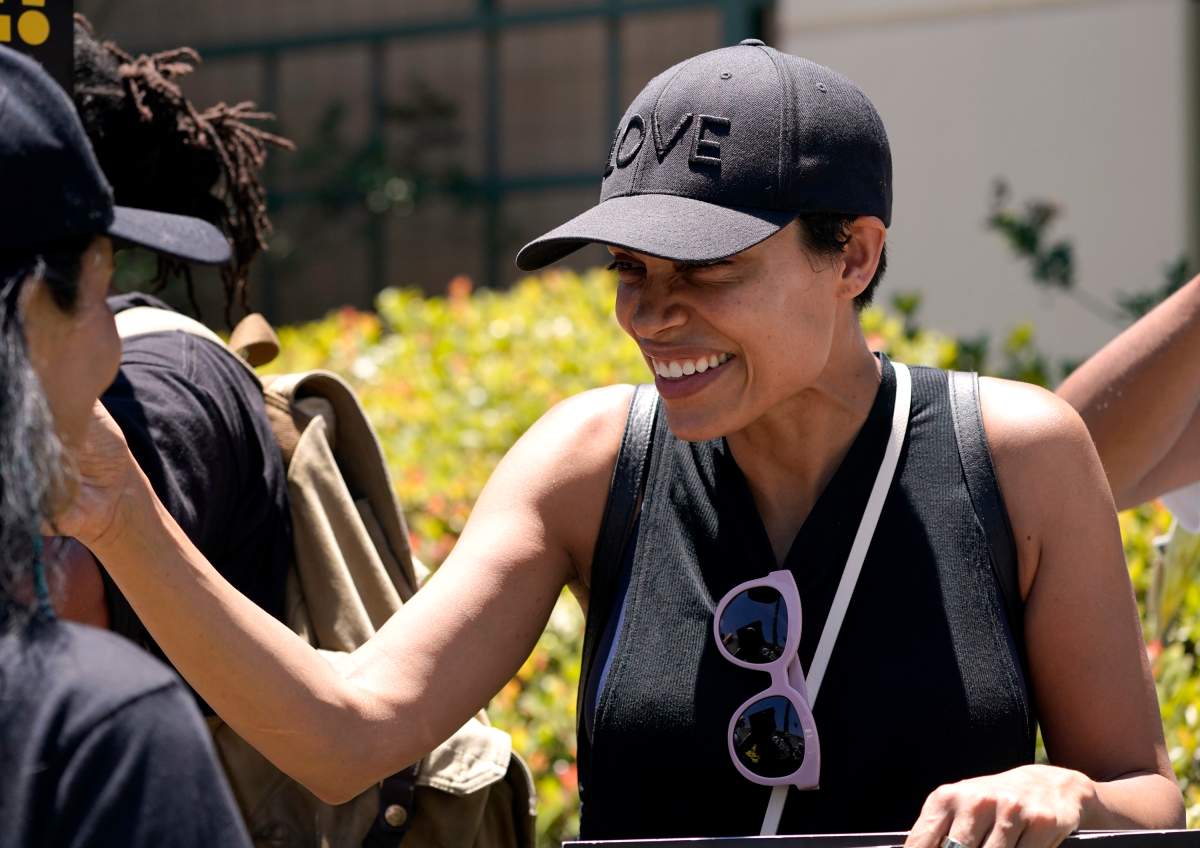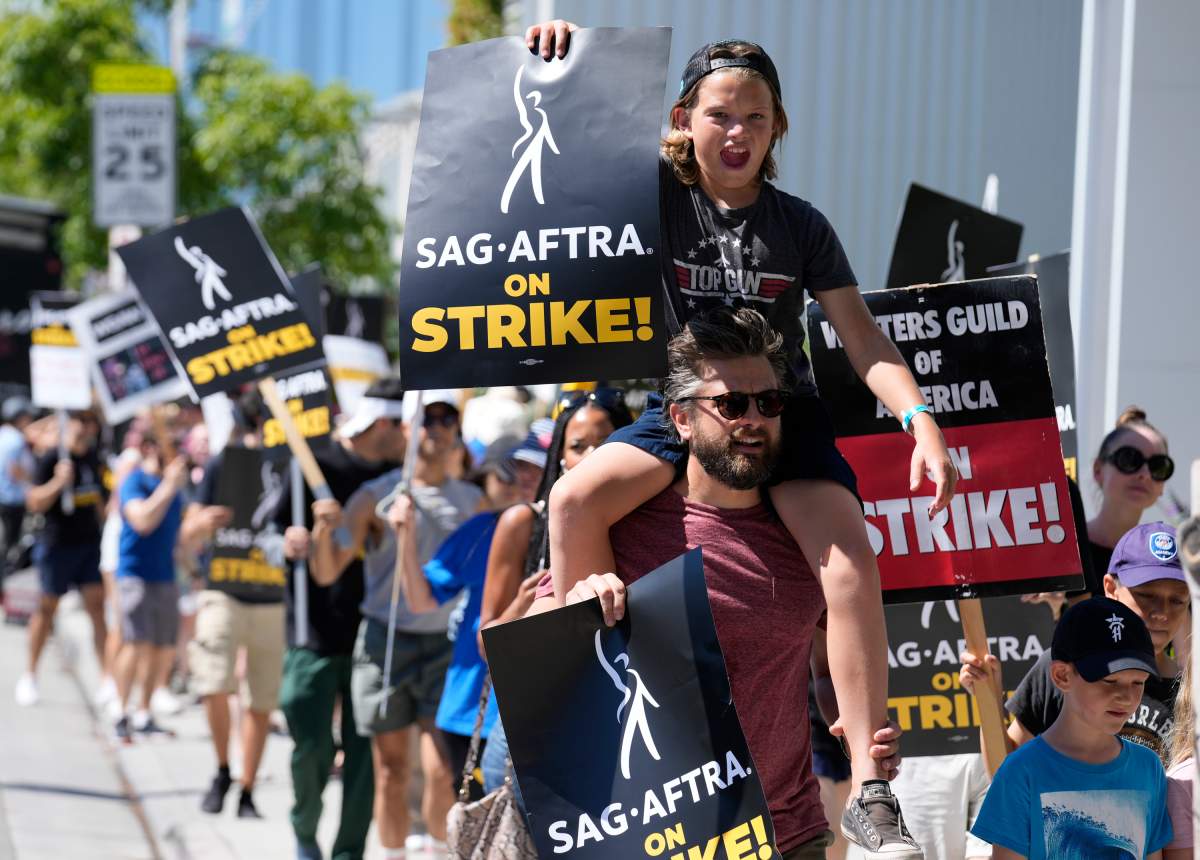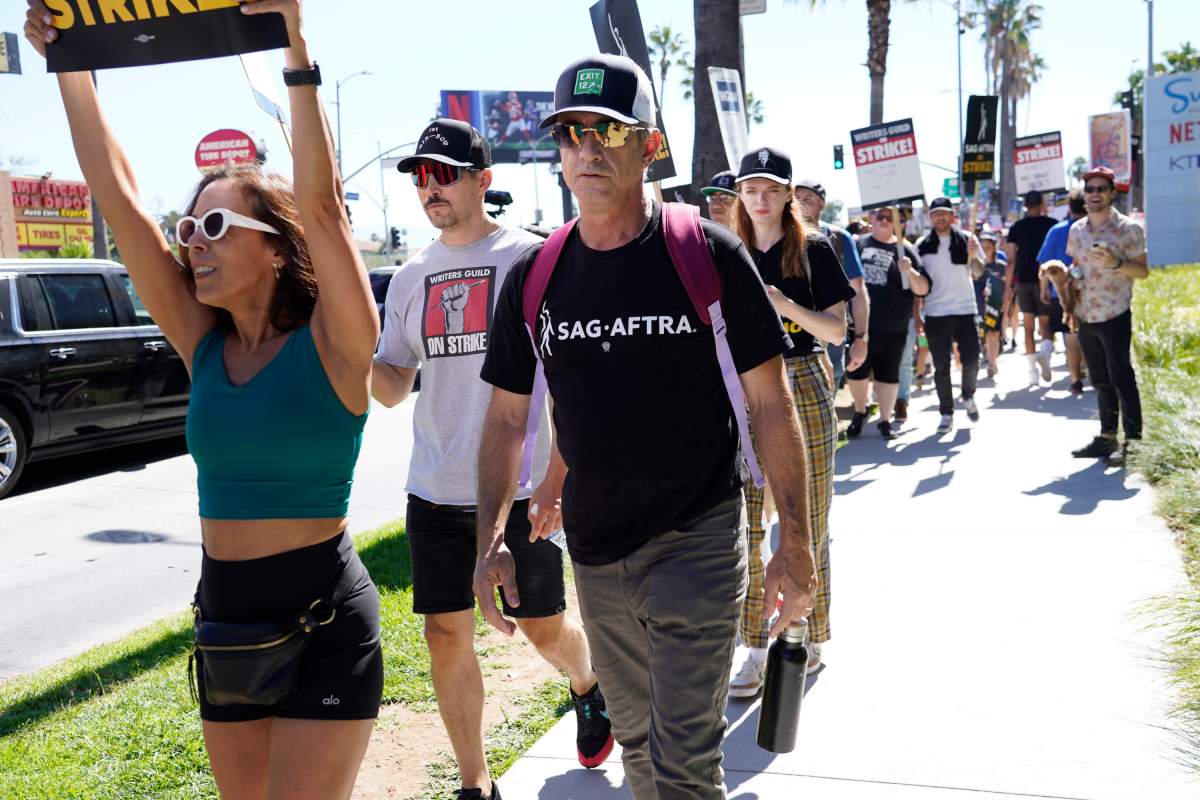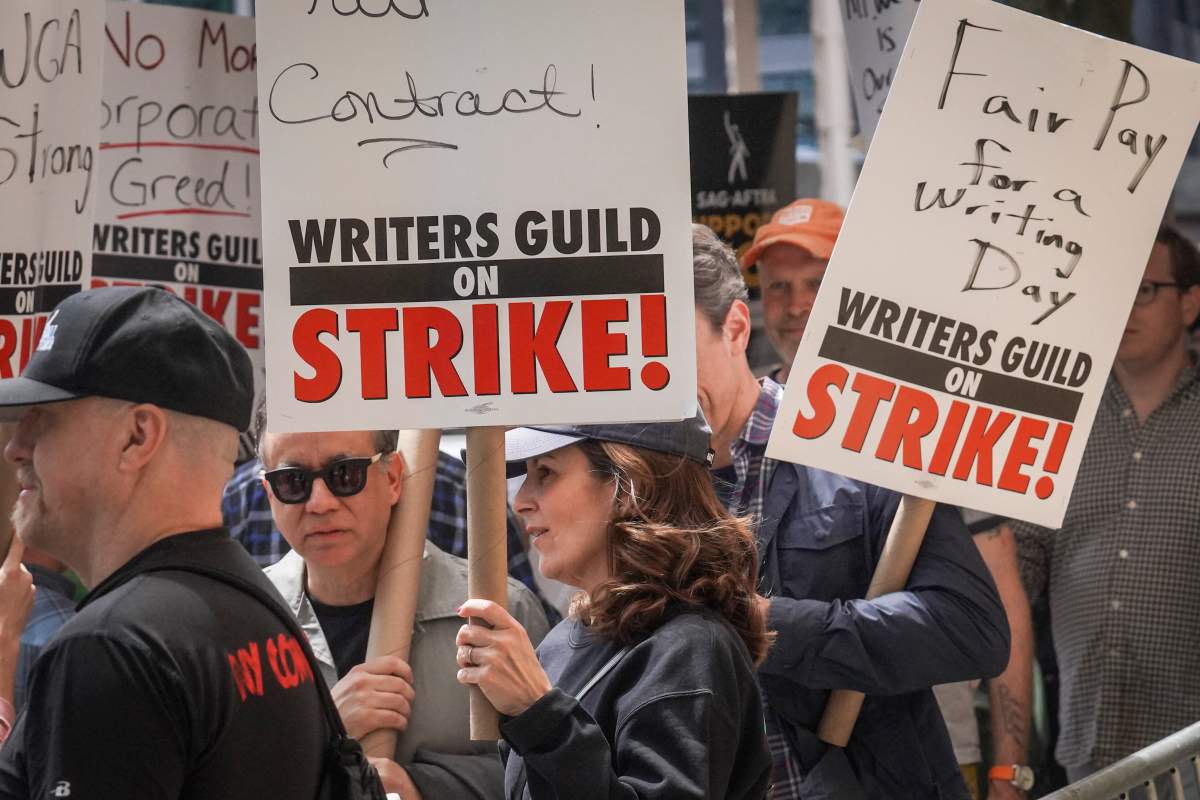Some of Canadians’ favourite Hollywood actors will officially be taking a break from the big screen to join the picket line.

The Screen Actors Guild-American Federation of Television and Radio Artists (SAG-AFTRA) made the decision Thursday to join the Hollywood’s writers’ union in a strike. Observers say the actors’ union’s decision largely comes down to a demand for compensation from studios and streaming services that keeps up with inflation.
“The compensation issues include both upfront compensation, the session fees, the money they’re paid when they do the work, and also residuals or royalties that actors, and also writers and directors get paid when product is rerun or reused,” said Los Angeles entertainment lawyer Jonathan Handel in an interview with Global News.
When it comes to streaming, actors are concerned that being on a successful show on services like Netflix or Prime video won’t earn them a higher compensation than one that draws in less buzz.
“‘Wednesday’ doesn’t pay any higher residual than ‘Tuesday’ as it works,” Handel said, referencing the recent Netflix series produced and partially directed by Tim Burton.
American producer Tom Nunan told Global News that actors are increasingly being paid one lump-sum for their work on streaming services. Now, they want longer relationships with their content — similar to how they have been paid by non-streamers — and to see more transparency with the way that streaming services are measuring success.

Before streaming services, “actors would have a movie or TV show premiere and then get paid for that one thing and then it would be on cable systems or on demand… and they would continue to have what we call residual relationships with the content financially,” Nunan said.
“Now in the streaming era, you get paid once and that’s all you get paid.”
Attending a photo event on Wednesday, film star Matt Damon said that while everyone was hoping a strike could be averted, many actors need a fair contract to survive.
“We ought to protect the people who are kind of on the margins,” Damon told The Associated Press. “And 26,000 bucks a year is what you have to make to get your health insurance. And there are a lot of people whose residual payments are what carry them across that threshold… And that’s absolutely unacceptable. We can’t have that.”
Another key issue in the strike is the use of artificial intelligence — or AI. Computer generated imagery (CGI) is already widely used in the industry to simulate crowds or audiences, for example.
But as the digital age advances, studios have started to explore ways to convincingly replicate actors’ voices and faces. Early rumblings of ‘deepfakes’ already exist, where AI is used to make images of fake events or make appear that someone is saying something they didn’t.

Get breaking National news
Handel says that the industry generally holds two schools of thought on the matter. Some actors say they don’t have an issue with studios reproducing their likeness with AI, but they want to be compensated by studios. Others take issue with the use of AI entirely for authenticity purposes.
“It’s a compromise between both sides of the table… but I think the unions are most likely to take the first position: that as long as there’s compensation that would be satisfactory,” Handel said.
Nunan says he doesn’t think there is a large risk of Canadians’ favourite A-listers having their likeness replicated without their consent. Rather, lesser-known actors are more likely to have their features replicated without being aware because they don’t have the same protections through lawyers, agents and managers.

With actors and writers stepping away from U.S. productions, Handel says audiences may have to brace themselves for slightly different content for the time being. Reality television will be emphasized, he says, along with sports.
There’s also an opportunity for foreign content with actors and writers who are not part of the striking unions.
“Some companies, Netflix in particular, have proved very adept at creating content overseas and getting Americans to watch it. You know, “Squid Game,” for example. Netflix managed to do something that no one thought was possible, which is to get Americans to watch foreign content.”
Nunan, on the other hand, does not see foreign content now dominating screens, but it “could be promoted more heavily,” he says.
The actors’ guild released a statement early Thursday announcing that its deadline for negotiations to conclude had ended without a contract.

“The companies have refused to meaningfully engage on some topics and on others completely stonewalled us. Until they do negotiate in good faith, we cannot begin to reach a deal,” said Fran Drescher, the star of “The Nanny” who is now the actors’ guild president.
Members of the Writers Guild of America have been on strike since early May, slowing the production of film and television series on both coasts and in production centres like Atlanta.
Handel said the dual actors’ and writers’ strike is a “win” for studios because “they’re not spending money on production.”
With files from the Associated Press and Global News’ Reggie Cecchini.













Comments
Want to discuss? Please read our Commenting Policy first.